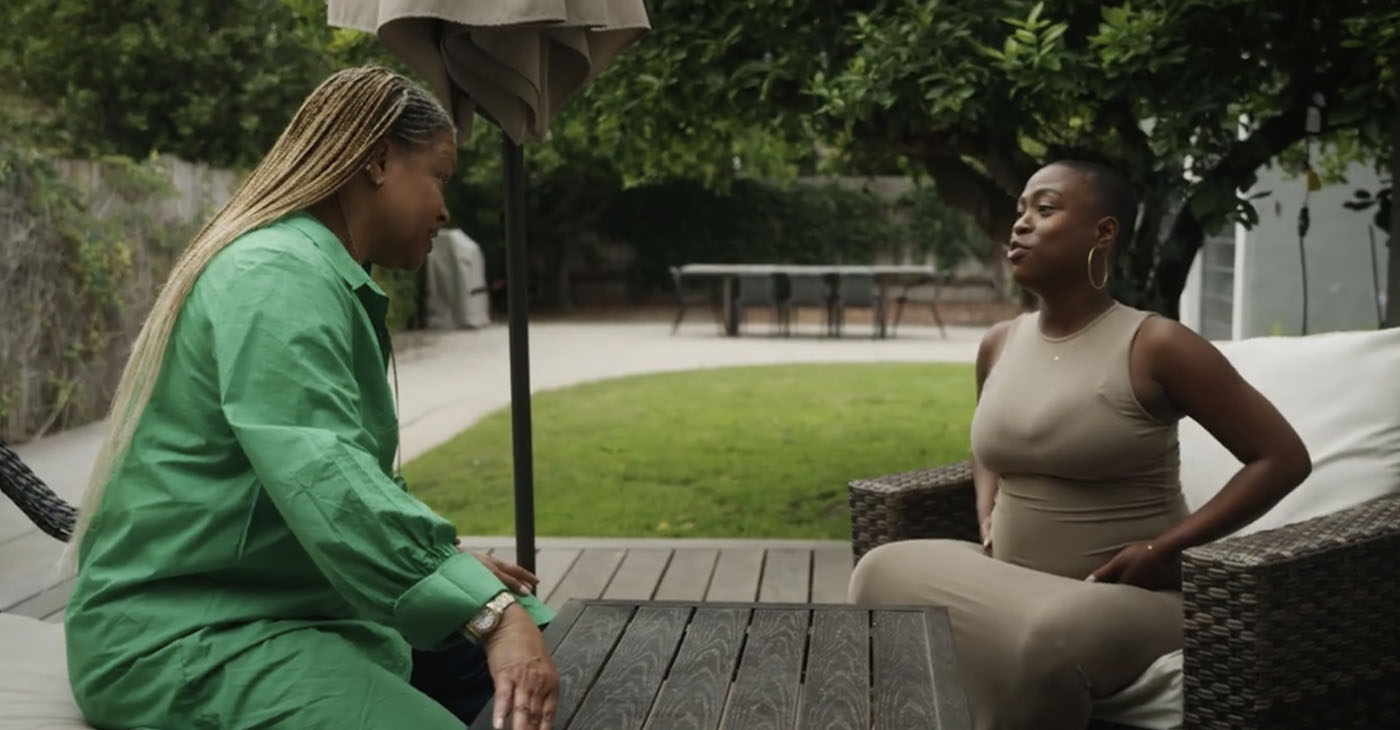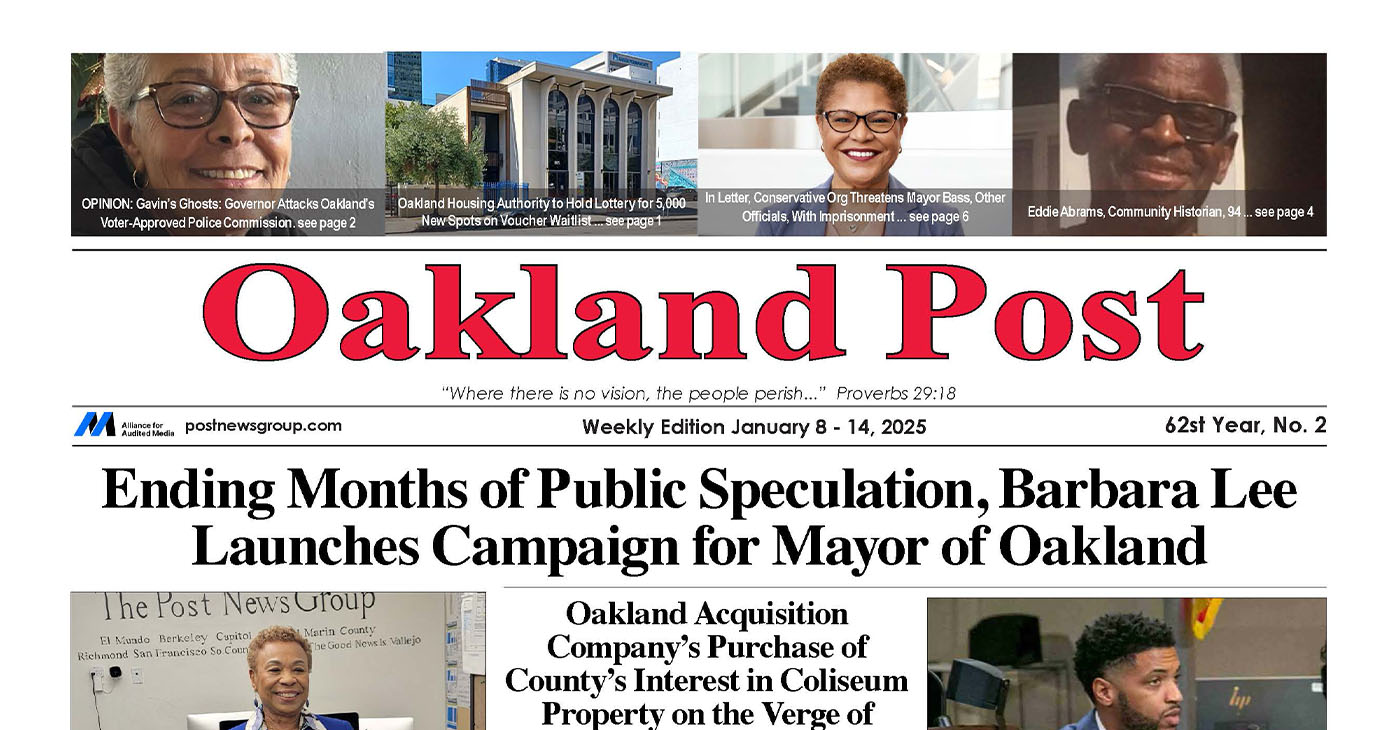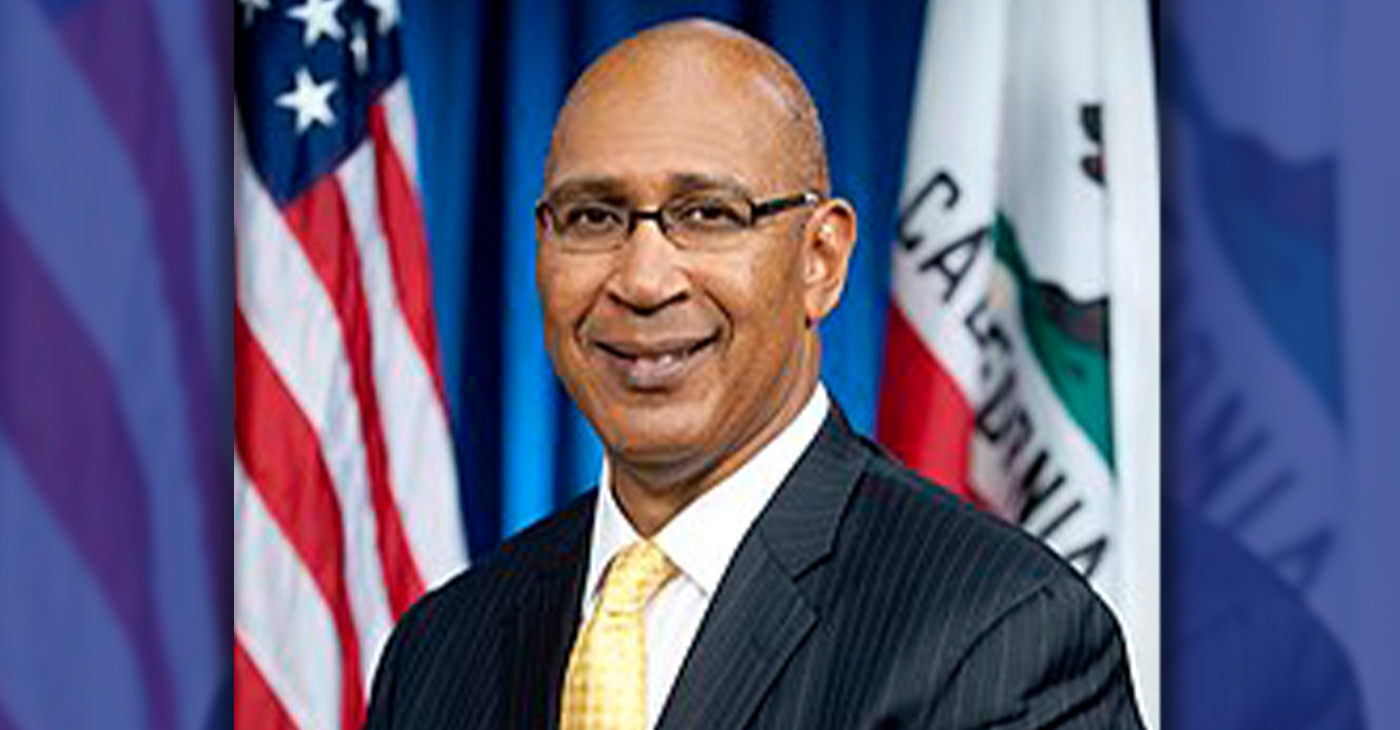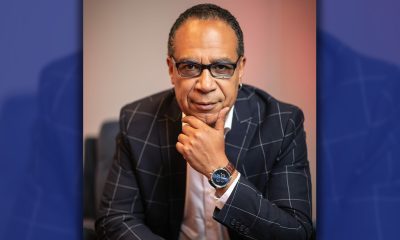California Black Media
Doulas & Black Moms: Bridging the Gap Between Mental Treatment and Maternal Care
There is a growing body of evidence that disparities in medical treatment in the United States — compounded over centuries by the legacy of slavery, Jim Crow segregation and prevalence of anti-Black biases — have adversely affected the health of Black women in numerous ways, including the birthing process.

By Aldon Thomas Stiles
California Black Media
There is a growing body of evidence that disparities in medical treatment in the United States — compounded over centuries by the legacy of slavery, Jim Crow segregation and prevalence of anti-Black biases — have adversely affected the health of Black women in numerous ways, including the birthing process.
In June, the tragic and high-profile death of Olympic Gold Medalist and sprinter Tori Bowie during childbirth brought more national attention to the crisis of Black maternal mortality in the United States.
Aware of the discrepancies in treatment as compared to women of other races and terrified by the potential mental health ramifications of those disparities — which can lead to greater fear and anxiety about pregnancy and childbirth — some Black women are seeking alternatives to hospital births.
Black women die at nearly twice the rate of white women during labor, according to data from the National Institutes of Health (NIH).
In July, the U.S. Department of Health and Human Services (HHS) announced that the federal government has launched a civil rights investigation into the treatment of Black expectant mothers at Cedars Sinai Medical Center in Los Angeles.
“Maternal health is a priority for the Biden-Harris Administration and one in which the HHS Office for Civil Rights is working on around the country to ensure equity and equality,” read an emailed statement from HHS to several news outlets.
The federal investigation comes seven years after the 2016 death of a Black woman, Kira Dixon Johnson, who died from internal bleeding following a cesarean section at Cedars Sinai.
Dr. Melissa Frank, director of the Division of Maternal, Child, and Adolescent Health with the Los Angeles County Department of Public Health, stated that she has “lived the disparity” associated with maternal healthcare.
During the delivery of her second daughter, Franklin says she could tell something was wrong and expressed that to hospital staff, “I feel like I’m dying,” but her concerns were largely dismissed.
When the hospital staff finally checked on her, they discovered that her blood pressure was dangerously low to which she responded, “I told y’all!”
According to data from the Centers for Disease Control and Prevention (CDC), in 2021, Black women in the U. S. were more than twice as likely as white women to die due to complications related to maternity and the birthing process.
In California, the risk of death due to pregnancy complications is four to six times higher for Black mothers than any other ethnic group, according to data from the California Health Care Foundation.
Research has indicated that maternal mental health conditions, including prenatal and postpartum anxiety and depression, are the most common complications of pregnancy and childbirth.
According to the American Hospital Association Institute for Diversity and Health Equity, 12.5% of birthing people will suffer from postpartum depression. However, Black women are about 1.6 times more likely to deal with its effects than white women.
Hiring a doula is one solution Black women are using to help address some of the mental health issues associated with the birthing process. A 2013 study by the National Center for Biotechnology Information found that mothers who received support from a doula during childbirth were two times less likely to experience complications.
A doula is a trained professional who provides emotional and physical support to pregnant individuals during pregnancy, childbirth and the postpartum period.
Doulas are not medical professionals and do not deliver babies or provide medical care. Instead, they offer support in the form of physical comfort, emotional well-being, information, and advocacy.
According to another study by the National Center for Biotechnology Information, doula-assisted mothers were 57.5% less likely to suffer from postpartum depression or anxiety. This confirms that having the support of a doula during the birthing process can have a significant positive impact on the mental health of mothers.
The long history of discriminatory care towards Black women in the healthcare system has resulted in another mental health issue: generational trauma.
“When we speak about Black maternal health, we cannot ignore the fact that the foundation of medicine in this country and many of its early principles were deeply rooted in racism,” said Assemblymember Akilah Weber (D-La Mesa), a board-certified obstetrician/gynecologist, and founder and past director of the Pediatric & Adolescent Gynecology Division at Rady Children’s Hospital-San Diego.
“Some of the earliest examples of experimental research relied on these racist concepts. The pain of Black individuals was not only ignored but assumed to not be experienced to the same degree as white individuals.”
Franklin emphasized the importance of culturally competent care for the mental health of Black mothers.
“The support of doulas as alternative birthing spaces gives Black women the opportunity, the choice of giving birth in a way that’s culturally affirming,” said Franklin. This highlights the significance of providing care that is sensitive to the cultural needs and experiences of Black women during the birthing process.
Franklin also pointed out that doulas alone cannot bear the burden of an unfair healthcare system. She emphasized the importance of hospitals employing well trained providers who operate in anti-bias and anti-racism spaces. This can help Black women give birth with “the support of a village.”
California has been taking steps to address healthcare disparities and improve outcomes for Black mothers and birthing individuals. The state introduced various policies and initiatives aimed at making culturally competent care a reality.
For example, the Department of Health Care Services (DHCS) has taken steps to improve access to doula services for expectant mothers. One such initiative is the inclusion of doula services as a preventative care option covered under Medi-Cal. This can help make doula support more accessible and affordable for those who need it.
Los Angeles County Supervisor Holly J. Mitchell has emphasized the importance of doula care in improving pregnancy experiences and birthing outcomes.
In a press release, she stated that “Doula care is shown to improve pregnancy experiences and birthing outcomes. We must increase awareness of doula services for mothers and families across the County and expand our workforce to be more representative of our communities most in need.” This highlights the need for greater awareness and accessibility of doula services, particularly for those in underserved communities.
In the meantime, Dr. Franklin’s advice is to listen to Black women when they express concerns about their health. This means taking their concerns seriously and providing them with the care and support they need.
Activism
Oakland Post: Week of January 8 – 14, 2025
The printed Weekly Edition of the Oakland Post: Week of January 8 – 14, 2025

To enlarge your view of this issue, use the slider, magnifying glass icon or full page icon in the lower right corner of the browser window.
Activism
2024 in Review: 7 Questions for Former Assemblymember Chris Holden
While in office, Holden championed efforts to improve education outcomes for students and advocated for social and racial justice. Legislation he wrote or sponsored also focused on, innovation in transportation, protecting developmental disability service providers and improving public health, more broadly.

By Edward Henderson, California Black Media
In 2012, Assemblymember Chris Holden was first elected to the California State Assembly representing the 41st District in the San Gabriel Valley.
He was re-elected to that position for the following four terms.
While in office, Holden championed efforts to improve education outcomes for students and advocated for social and racial justice. Legislation he wrote or sponsored also focused on, innovation in transportation, protecting developmental disability service providers and improving public health, more broadly.
Holden, a graduate of San Diego State University, lives in Pasadena with his wife, Melanie, and children Nicholas, Alexander, Austin, Mariah and Noah. Holden is the son of former State Senator and LA City Councilmember Nate Holden.
Before he closed out his final year of service in the Assembly, California Black Media (CBM) spoke with Holden. He reflected on his accomplishments this year and his goals moving forward.
Looking back at 2024, what stands out to you as your most important achievement and why?
A project I’ve been working on for well over 36 years — the light rail system — made its way into Pasadena from downtown LA. Now it’s making its way through the San Gabriel Valley to Pomona.
How did your leadership and investments contribute to improving the lives of Black Californians?
Having an opportunity to represent a multi-ethnic and diverse district is exciting, but to be able to bring a voice for a lived African American experience from the San Gabriel Valley is very important.
What frustrated you the most over the last year?
I still am frustrated that we aren’t seeing the kind of progress on affordable housing to allow underrepresented communities to be able to afford to live in the community that they grew up in.
What inspired you the most over the last year?
There has been a lot of movement around reparations through community engagement. Dr. Shirley Weber put forth the bill to establish a reparations task force and that task force met for a number of years. Two members of our caucus served on it, Sen. Steven Bradford and Assemblymember Reggie Jones-Sawyer. A thousand-page report and a hundred recommendations or more came out of that. And now we’re in the process of finding ways to implement some of those recommendations. It’s going to be a longer process, but I’m hopeful because California, once again, is on the front end of taking on a really challenging issue.
What is one lesson you learned in 2024 that will inform your decision-making next year?
Always be mindful how quickly the winds can change. We’ve gone from 10 years of having budget surpluses to this year having a $45 billion deficit.
In one word, what is the biggest challenge Black Californians face?
Inequality.
What is the goal you want to achieve most in 2025?
Well, I won’t be in the legislature in 2025, but I love public policy. I’d like to find myself in a position where I’m continuing to have an influence on how public policy is shaped and formed. I’m just looking forward to being a vital voice going into next year in a different role. It will also be an opportunity to lay a foundation to take another run, possibly for a seat on the LA County Board of Supervisors in 2028.
Activism
2024 in Review: 7 Questions for Equality California Political Director Shay Franco-Clausen
Shay Franco-Clausen is an award-winning public advocate, speaker, political strategist and former elected official. She has contributed her thought leadership to drafting seventeen pieces of legislation in California. Notable among these accomplishments is her role in extending the statute of limitations for felony domestic violence survivors, advocating for the rights of foster youth, preserving endangered open spaces, and championing the restoration of voting rights for individuals on parole.

By Edward Henderson, California Black Media
Shay Franco-Clausen is Political Director for Equality California, the nation’s largest statewide LGBTQ+ civil rights organization.
Franco-Clausen is an award-winning public advocate, speaker, political strategist and former elected official. She has contributed her thought leadership to drafting seventeen pieces of legislation in California. Notable among these accomplishments is her role in extending the statute of limitations for felony domestic violence survivors, advocating for the rights of foster youth, preserving endangered open spaces, and championing the restoration of voting rights for individuals on parole.
California Black Media (CBM) spoke with Franco-Clausen about her successes, frustrations and future plans heading into 2025.
Looking back at 2024, what stands out to you as your most important achievement and why?
In the role that I sit in as the political director for Equality California, we endorsed 216 candidates. I think the one achievement after this election that I’m proud of is that we overturned Prop 8 to protect same-sex marriages here because they’re about to attack our rights on the federal level, come 2025.
I’m glad at least we changed our California constitution to reflect and protect my marriage.
How did your leadership and investments contribute to improving the lives of Black Californians?
I contribute through my lived experience. I may have achieved a lot, but I come from those same communities that are marginalized, East Oakland, East San Jose, Watts. It gives me a different perspective. I am a formerly incarcerated youth who was in foster care. I think I contribute that bit of understanding, and I operate from an equity lens. I’m willing to push people to make them recognize that hey, you cannot forget about Black people. We are the most marginalized.
What frustrated you the most over the last year?
What frustrates me is our inability to recognize that we forget people. I was tapped to work on the Harris campaign from Equality California. And through that, being at that table, I was frustrated that they weren’t listening to Americans and not looking at the data.
The reason Trump won is because he had consistent messaging, and we didn’t debunk it. I think I’m more frustrated that we don’t fully listen to people all the time when they’re critiquing us.
What inspired you the most over the last year?
All those people that came out to support Kamala Harris. I was proud that my son voted for the first time for a Black woman for President.
What is one lesson you learned in 2024 that will inform your decision-making next year?
Be fearless. Sometimes I second-guess myself. I push back, but I could push more because I’m qualified. I have the education, I have the experience, and I know what I’m talking about in all the rooms that I go in. And I must be confident in that.
In one word, what is the biggest challenge Black Californians face?
Prioritization.
We’re still not seen as a priority, but everyone likes to add us to their talking points.
What is the goal you want to achieve most in 2025?
Writing a book. I think it’s important for us to tell our stories.
I am also kicking off my campaign for Hayward City Council.
-

 Activism3 weeks ago
Activism3 weeks agoBooks for Ghana
-

 Arts and Culture4 weeks ago
Arts and Culture4 weeks agoPromise Marks Performs Songs of Etta James in One-Woman Show, “A Sunday Kind of Love” at the Black Repertory Theater in Berkeley
-

 Bay Area3 weeks ago
Bay Area3 weeks agoGlydways Breaking Ground on 14-Acre Demonstration Facility at Hilltop Mall
-

 Activism4 weeks ago
Activism4 weeks ago‘Donald Trump Is Not a God:’ Rep. Bennie Thompson Blasts Trump’s Call to Jail Him
-

 Activism3 weeks ago
Activism3 weeks agoLiving His Legacy: The Late Oscar Wright’s “Village” Vows to Inherit Activist’s Commitment to Education
-

 Arts and Culture3 weeks ago
Arts and Culture3 weeks agoIn ‘Affrilachia: Testimonies,’ Puts Blacks in Appalacia on the Map
-

 Alameda County3 weeks ago
Alameda County3 weeks agoAC Transit Holiday Bus Offering Free Rides Since 1963
-

 #NNPA BlackPress4 weeks ago
#NNPA BlackPress4 weeks agoCalifornia, Districts Try to Recruit and Retain Black Teachers; Advocates Say More Should Be Done





















































